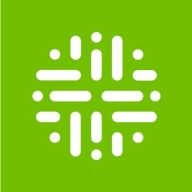

Find out what your peers are saying about Microsoft, Informatica, IBM and others in Data Integration.
Our stakeholders and clients have expressed satisfaction with Azure Data Factory's efficiency and cost-effectiveness.
When considering the time and effort required to build a catalog and utilize it effectively, combined with the prices, it often does not make financial sense.
Implementing Collibra Data Catalog can be cost-effective if its features align well with the business requirements.
While there are no direct cost reductions, there is significant indirect cost reduction.
The technical support from Microsoft is rated an eight out of ten.
The technical support is responsive and helpful
The technical support for Azure Data Factory is generally acceptable.
When using the Collibra Resident Architect program, the customer service was excellent, with issues quickly resolved.
The technical support from Collibra Governance is excellent.
I encountered some issues with data quality initially in Collibra Data Intelligence Platform, and they resolved those issues.
Azure Data Factory is highly scalable.
We were a big bank and had thousands of assets without any issues.
It is very critical for a data governance tool to be stable and scalable because we start with critical data sets in one line of business, but ultimately, we want to cover the enterprise and all lines of businesses.
Collibra Lineage's performance is reliable, as the lineage harvest runs on the lineage server which operates on Collibra cloud.
The solution has a high level of stability, roughly a nine out of ten.
I rate the stability of Collibra Lineage as seven.
Incorporating more dedicated API sources to specific services like HubSpot CRM or Salesforce would be beneficial.
Sometimes, the compute fails to process data if there is a heavy load suddenly, and it doesn't scale up automatically.
There is a problem with the integration with third-party solutions, particularly with SAP.
Users often find it challenging to utilize data governance tools, with ease of use ranked as an important criterion by 2028 standards.
There should be a reduction in cost as compared to other tools.
There is an issue with Collibra Catalog's pricing model, especially for organizations with many databases, as the initial package comes with a limited number of connectors.
The pricing is cost-effective.
It is considered cost-effective.
Collibra has high initial costs for licensing that can be a barrier to small and medium-sized companies starting with it.
There are plans to increase license rates.
Adding modules like Privacy could become expensive.
It connects to different sources out-of-the-box, making integration much easier.
The platform excels in handling major datasets, particularly when working with Power BI for reporting purposes.
Regarding the integration feature in Azure Data Factory, the integration part is excellent; we have major source connectors, so we can integrate the data from different data sources and also perform basic transformation while transforming, which is a great feature in Azure Data Factory.
My experience with Collibra's collaboration tools in improving data literacy has been quite good. I think it is one of the best for helping people understand and discuss certain data sets and manage workflows.
We have saved up to 30% of manual work as a specific process or workflow became faster.
Collibra Platform will identify that this column appears to have social security numbers and will mask those columns automatically.
| Product | Market Share (%) |
|---|---|
| Azure Data Factory | 3.0% |
| SSIS | 3.7% |
| Informatica Intelligent Data Management Cloud (IDMC) | 3.5% |
| Other | 89.8% |
| Product | Market Share (%) |
|---|---|
| Collibra Platform | 8.8% |
| Microsoft Purview Data Governance | 12.1% |
| Varonis Platform | 7.3% |
| Other | 71.8% |

| Company Size | Count |
|---|---|
| Small Business | 31 |
| Midsize Enterprise | 19 |
| Large Enterprise | 57 |
| Company Size | Count |
|---|---|
| Small Business | 20 |
| Midsize Enterprise | 9 |
| Large Enterprise | 55 |
Azure Data Factory efficiently manages and integrates data from various sources, enabling seamless movement and transformation across platforms. Its valuable features include seamless integration with Azure services, handling large data volumes, flexible transformation, user-friendly interface, extensive connectors, and scalability. Users have experienced improved team performance, workflow simplification, enhanced collaboration, streamlined processes, and boosted productivity.
Collibra Platform is preferred for workflows, data lineage, and a user-friendly interface. It enhances metadata management with robust collaboration, flexible customization, and powerful reporting, aiding organizations in effective data management.
Collibra Platform provides dependable solutions for metadata management, data lineage, and governance. It strengthens data governance with cataloging, glossaries, automation, and integration, supporting compliance and data quality management. Despite challenges with integration and metadata ingestion, the platform is vital for data governance programs, offering comprehensive AI capabilities and streamlined processes for enterprise data management.
What are Collibra Platform's key features?In industries, Collibra Platform supports IT teams through metadata management and data quality assurance. It is widely used for compliance initiatives like GDPR, speeding up digital transformation and enforcing policy management. Organizations employ it to consolidate business and technical metadata, ensuring effective enterprise-scale data management in diverse sectors.
We monitor all Data Integration reviews to prevent fraudulent reviews and keep review quality high. We do not post reviews by company employees or direct competitors. We validate each review for authenticity via cross-reference with LinkedIn, and personal follow-up with the reviewer when necessary.